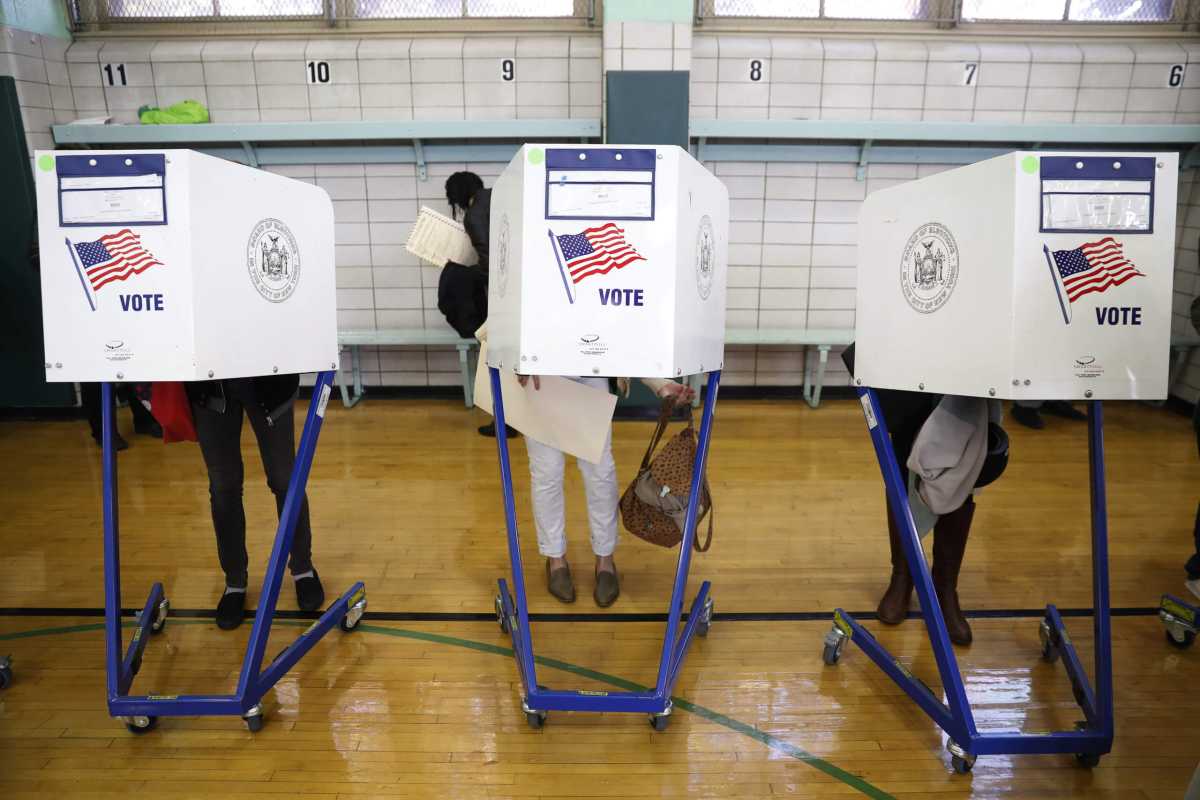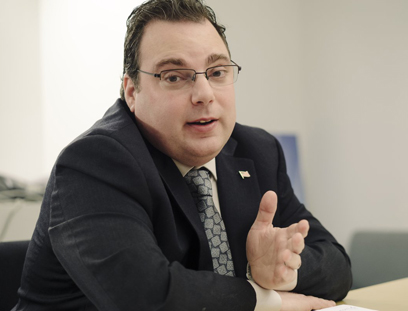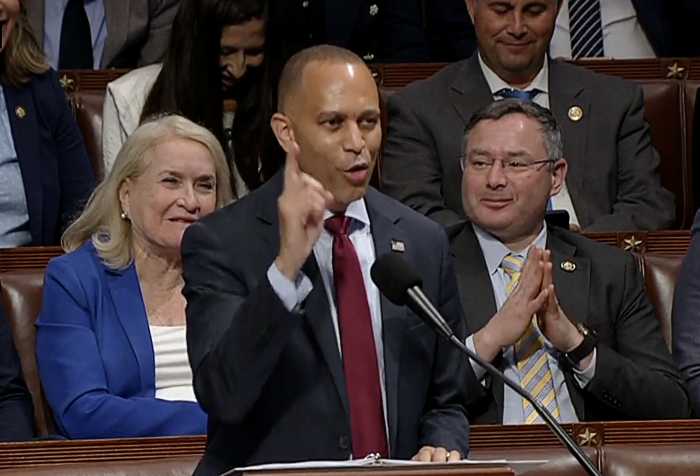By Nandani Bharrat, Casey Bohannon, Michael Donatz, Derek Gaskill, Paige Havener and Angela LaScala-Gruenewald
This past March, the six of us collected signatures from our neighbors and submitted petitions to run for seats on Kings County Democratic Committee, the governing body of the Brooklyn Democratic Party. Our hope is to represent our communities as elected members of County Committee and help build and reform our local political system.
Yet on Wednesday, April 22, we learned that the Board of Elections disqualified our petitions and, therefore, denied us access to the June 23 Democratic Primary ballot — not because we did not collect enough signatures — but because of our genders. Our petitions did not specify our genders as male or female, a current requirement in order to be accepted as County Committee candidates.
We contend the gender-based discrimination ingrained in Brooklyn’s petitioning process violates the 14th Amendment of the US Constitution and our city and state human rights laws. And therefore, we filed a lawsuit to challenge the County Committee rules that deny us access to these seats.
As a group, we identify across a range of genders, often referred to as transgender, gender non-conforming, and non-binary (TGNCNB). This means we do not fit neatly into categories of “man” or “woman,” “male” or “female,” and/or “masculine” or “feminine,” but rather we use many different terms to describe our genders. Our gender identities vary and include non-binary, genderfluid, genderqueer, and trans individuals.
The current requirements to petition for a seat on County Committee neglect a view of gender that reflects our lived experience and the experiences of tens of thousands of New Yorkers. As both first-time candidates and former members of the committee, we see how gender and gender-based assumptions permeate our local Democratic Party structure. For example, you must designate whether you are male or female to run for a membership seat and to run for the next highest office, District Leader on County Committee. Until recently, roles on the Party’s Executive Committee required people of “opposite genders” to hold the two highest leadership positions.
As our case makes its way through the Brooklyn Supreme Court and others speak out on either side of this lawsuit, we are proud to represent a small part of a bold, creative, and resistant LGBTQI+ community that is underrepresented in politics. We know representation matters.
One of us, as a genderqueer person of color residing in Brooklyn since 1990, feels strongly about participating in local governance in their hometown. A second plaintiff, who identifies as trans masculine, is committed to building a stronger, more diverse political structure within our borough. Prejudices that bar these individuals from running and make decision-making spaces inaccessible to the very people affected by these decisions are unlawful, oppressive, and dehumanizing. Each of us should have the right to run to represent our communities.
Removing these gender barriers is critical to fixing our local political system. For many, holding a seat on County Committee is the first stepping stone before running for higher office in New York City. As Democrats, we can and should do better to support people of all genders seeking these elected positions.
In changing this rule, we believe our local party will not only include more TGNCNB people, but also start the process of developing paths that encourage more diverse representation for other groups historically left out of the political process, such as women, people of color, and poor and working class individuals.
Most importantly, we hope this case brings attention to the need for awareness and representation on a grander scale–from local issues around voting rights and accessibility to more diverse officeholders at the state and federal levels. Brooklyn is a great starting place, but we must further the fight to uphold the 14th Amendment across every aspect of our political system. The mental and physical health and safety of LGBTQI+ people across our country depend on it.
Finally, this is a community effort and we want to thank the numerous groups that have made this possible: #RepYourBlock and New Kings Democrats for helping us run for the first time in ways that affirm our gender identities and give us access to the most local level of our political system; Queeramisu and Lambda Independent Democrats for representing our communities in the fight for gender justice in our political system; Binaryfree NY for advocating for non-binary, transgender, and intersex inclusion in New York City and New York State; and, importantly, Brooklyn’s vibrant queer grassroots organizations and our fellow community members (too many beautiful organizations and souls to name) who have offered us safety, protection, affirmation, and a home as we live out our lives in this borough.
























